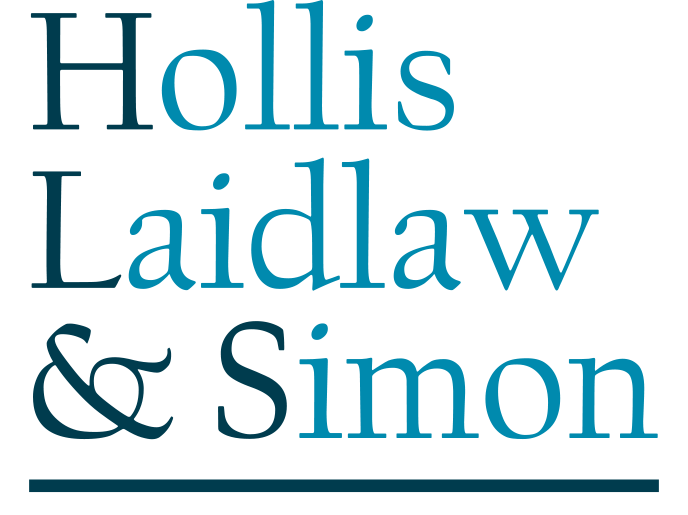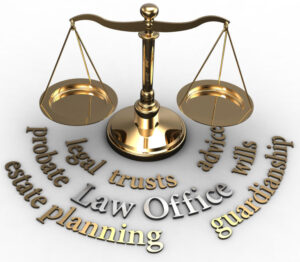The title of this blog article may seem absurd, and yet I cannot tell you how many clients have told me that someone they know has established a trust, and ask me if they should have one as well. My question invariably is, “What is it that you want to accomplish with the trust?” The answer to this question helps us to determine together whether a trust would be helpful in their case. Their estate plan should, after all, be created based upon their wishes and the needs of their beneficiaries, not upon their comparison of themselves with their neighbor.
There is something to be said for our tendency as human beings to constantly compare ourselves with the other people we encounter in life, however, when it comes to preparing for our demise, the decisions are so dependent upon our particular circumstances. In most other arenas, such as our careers, the success of our children, the fantasy football league, and even our lawn care, we have obvious points of comparison (and cautionary tales) immediately available to us. We are privy to the information that tells us how we are progressing, which allows us to make changes if we are not satisfied with our status. We tend to calculate where we are in comparison to others, and think, “I can do better.” We complete a task, see how we stack up, and decide we would have come out ahead if we had only done something differently, and immediately try it again with that revision. An estate plan is different in that we do not often hear about the experiences other families have trying to collect and distribute assets after their loved one’s death, and our own plans do not get tested until they can no longer be changed. If friends and acquaintances were not talking about their own planning, most people would not have any indication that they were less or more prepared until it is too late. We will either be incapacitated or deceased when things go awry, so a little competitiveness in our planning is actually a good thing.
The least competitive among my clients, at least regarding the topic of estate planning, say, “What do I care? I’ll be dead!” While I understand the sentiment, these clients are in the minority. Most clients care very much. They care that they preserve as much of their assets as possible from taxes and long-term healthcare costs, so that their beneficiaries can receive as much as possible. They care that they are not inconveniencing the people whom they have selected as agents and fiduciaries, and that they leave them with some guidance, and they care that things are as easy as possible for their loved ones after they pass.
So, what do you need your estate plan to include in order to “win”? The answer, of course, is that it depends upon what you are trying to accomplish. For some people, that means keeping their estate below the current estate tax threshold ($6,940,000 for a New York resident and $13,610,000 federally and for a Connecticut resident as of January 1, 2024). Methods to reduce the size of your estate (and preserve it for others to use) include, among others, creating a credit shelter trust within your documents for your spouse to disclaim assets into if you are the first to die, making lifetime gifts to individuals, either outright or in further trusts, and creating life insurance trusts to keep the proceeds from your life insurance policies outside your estate.
For clients with a child who has special needs, winning means establishing trusts that will prevent the child’s inheritance from disqualifying the child from receiving public benefits, which would result in the child possibly being displaced from his/her program or residence, and in the assets that were left to him or her having to be spent down before the child can reapply for the benefits. The trust has very particular language to allow the trustee that the clients have chosen to make distributions throughout that child’s lifetime that will supplemental, and not supplant, the government benefits. It allows anything remaining in the trust upon the child’s death to be left to beneficiaries chosen by that child’s parents when they are creating the trust.
Clients who own assets individually endeavor to avoid their loved ones from needing to bring a probate proceeding (having their Last Will and Testament, and their fiduciary selection, approved by a court) to collect their assets. Often this requires them to establish revocable living trusts, which they will retitle non-retirement assets to during their lifetime. They should develop a list of each of their assets and go over the type of ownership and the beneficiaries with their attorney.
Clients who would otherwise lose a significant portion of their assets to long term health care costs need Medicaid asset protection plans. Trusts can be created to shelter assets for the clients’ children, allowing them to use Medicaid to cover their health care costs. There is currently a five-year lookback period for nursing home care, so clients requiring that level of care may need to utilize emergency Medicaid planning techniques in order to qualify, rather than gifting their assets into this type of trust.
Couples in a second marriage often want trusts created that allow their assets to benefit their new spouse but prevent the redirection of their assets away from their own children once their spouse has also passed.
Families with special vacation homes that they want to keep in the family will want to create trusts to hold the properties and to establish the rules surrounding their use and responsibility for repairs, maintenance and taxes.
Almost everyone will want to select the agents who will be able to make their financial and health care decisions for them in the event of their own incapacity.
The plan that is best for you depends upon your wishes and the needs of your beneficiaries. Anyone who sits down with an estate planning attorney and divulges their asset information, their ultimate goals for their assets, and their concerns about their beneficiaries, in order to establish the correct plan for their individual circumstances, has won.













